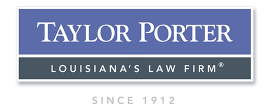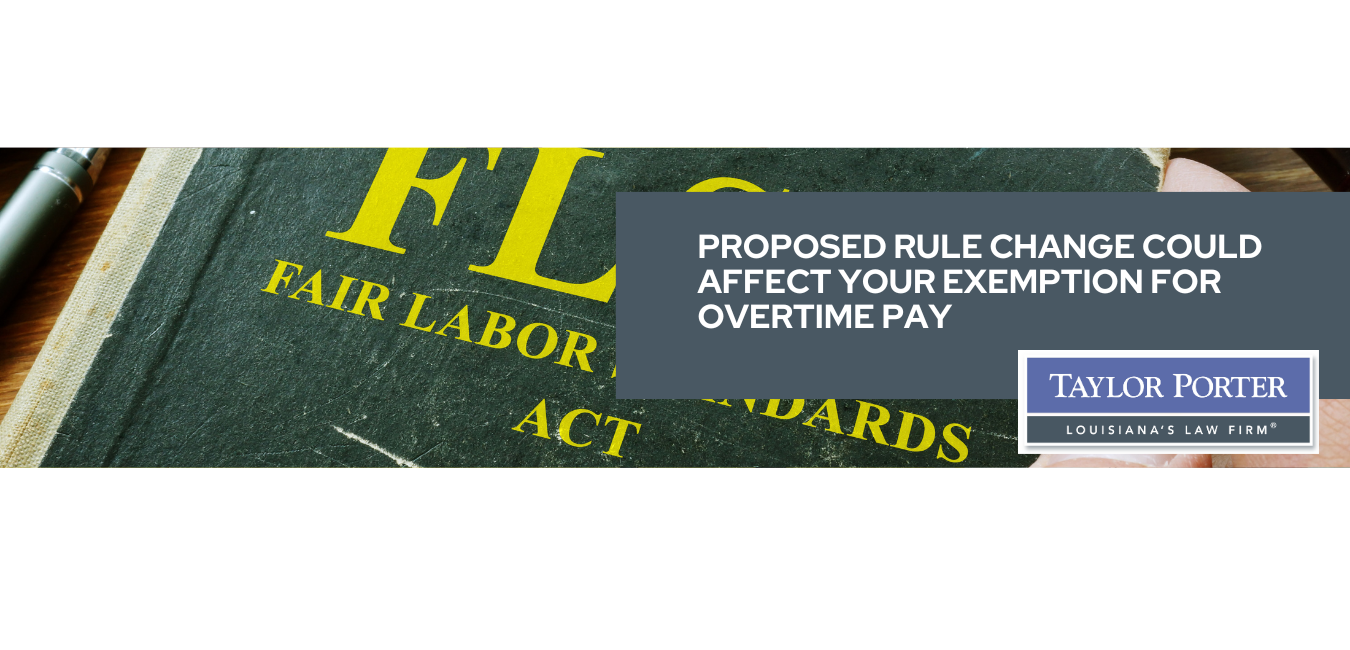Louisiana DOI Addresses Time Periods for Loss Submission, Repair Completion, Following Catastrophes
By Rick Norman, Taylor Porter Lake Charles Office
rick.norman@taylorporter.com
Click here to read full LDI Bulletin
 The Louisiana Department of Insurance issued a bulletin on February 11, 2021, addressing authorized (admitted) and approved unauthorized (surplus lines) insurers that provided property coverage to Louisiana citizens who were impacted by the multiple catastrophic events of 2020. As the recovery process continues in southwest Louisiana, our Taylor Porter attorneys share important information with you as you work to rebuild your homes and businesses. Click here to read our previous blog on property damage.
The Louisiana Department of Insurance issued a bulletin on February 11, 2021, addressing authorized (admitted) and approved unauthorized (surplus lines) insurers that provided property coverage to Louisiana citizens who were impacted by the multiple catastrophic events of 2020. As the recovery process continues in southwest Louisiana, our Taylor Porter attorneys share important information with you as you work to rebuild your homes and businesses. Click here to read our previous blog on property damage.
Bulletin 2021-02 provides that the time limit for the submission of proofs of loss may not be less than 180 days. The time limit may not commence as long as a declaration of emergency is in existence and civil authorities are denying the insured access to the property. No claim can be automatically denied because of the inability of the policyholder to provide sufficient proof of loss within the time limits and requirements of the policy.
This guidance applies to policyholders’ losses that arose due to a catastrophic event for which a state of disaster or emergency was declared pursuant to law by civil officials, and for those areas within the declaration.
The Bulletin further provides that any policyholder with replacement cost coverage is entitled to complete repairs to the property within one year from the date of the loss or the issuance of applicable insurance proceeds, whichever is later. Adherence to this provision entitles the policyholder to receive full value of the covered damage that has been repaired, without reduction for depreciation.
Essentially, the Bulletin directs insurers to act in good faith regarding the submissions of the proofs of loss. The Bulletin warns insurers that any attempt to cancel or non-renew a policy under the guise that damage has created a “material change in the risk” is inappropriate and any such action by an insurer will be the subject of a regulatory enforcement action by the Commissioner.
Insurance Tips for Rebuilding Your Home and Business
Reviewing and evaluating all potentially applicable insurance policies for coverage are key steps in recovering from catastrophic events. Business owners need to understand the language within their commercial property insurance policies, particularly concerning Business Interruption Insurance. Business Interruption Insurance coverage can reimburse business owners for lost profits during the time that the business was interrupted because of a catastrophic event, such as a hurricane.
Most commercial property insurance policies include coverage for business income lost as the result of a hurricane, even if the business’ physical location is not damaged. Contingent business interruption provides coverage for business interruption losses due to damage to customers or suppliers.
It is important to review your commercial policy as its provisions will control your rights and obligations. It is also important to value and document the loss, and keep detailed records documenting when and how business was interrupted, before submitting a claim under business interruption insurance coverage.
Here are several steps to help you properly prepare to address your insurance claim as securing insurance proceeds and assistance in a timely manner is critical to the recovery process of your business.
- Notify your insurer to start the claims process - Make sure you have the name of your insurance company, your policy number, and a telephone number and/or email address where you can be reached at all times. An adjuster should contact you within a few days of filing your claim.
- Document the damage - Separate damaged from undamaged property. Your adjuster will need evidence of the damage to your home and possessions to prepare your repair estimate. Take photographs of all of the damaged property, including discarded objects, structural damage, and standing floodwater levels. Make a list of damaged or lost items and include their date of purchase, value, and receipts, if possible. Officials may require disposal of damaged items so, if possible, place flooded items outside of the home.
- Complete a proof of loss to support your claim - Your adjuster will assist you in preparing a Proof of Loss (which is your sworn statement of the amount you are claiming including necessary supporting documentation) for your official claim for damages. A Proof of Loss can be many things, but must contain the specific details set forth in the Standard Flood Insurance Policy. You'll need to file your Proof of Loss with your insurance company within 60 days of the flood. This document substantiates the insurance claim and is required before the National Flood Insurance Program (NFIP) or insurance company can make payment.
- Seek outside assistance to review policies - Commercial policy provisions control rights and obligations, and these provisions can be complex, so outside legal counsel can help you determine if policies may cover lost income even if the business location is not physically damaged. In many cases concerning Hurricane Laura and the Lake Charles area, businesses are prevented from operating by order of a civil authority or because utility services have been interrupted.
- Form a claims team – Outside experts can include legal counsel, independent adjusters, professional claims consultants, forensic accounting firms, etc., to advise that losses are properly measured and documented when submitting the insurance claim. Having outside counsel involved in the process helps to ensure you’re getting the right advice.
- Compile legal documents and financial records – Financial records and legal documents related to your business interruption need to be compiled. Those documents should include business contracts, budgets, company forecasts, income tax returns, financial statements, payroll statements, property lease and rental agreements, and of course, your insurance policies. Records of costs incurred should also be collected, including relocation costs, purchase of generator, costs of notifying customers of relocation or shut-down during inaccessibility; and any costs of shipping charges to move out existing inventory.
Taylor Porter attorneys are available to help business owners with hurricane claims, should you have legal questions in the recovery process.
About Rick Norman: Taylor Porter Special Counsel Rick Norman leads the Firm’s Lake Charles Taylor Porter Office. He has represented southwest Louisiana business and industry clients for 35 years, practicing in commercial litigation, insurance, labor and employment, construction, health care, and transactions. Rick is the author of two legal treatises on business law used by both practitioners and in law schools: Louisiana Employment and Louisiana Corporations. Rick is the president of the Louisiana State Law Institute, an arm of the Louisiana legislature that studies and drafts legislation. He also serves on Law Institute committees rewriting the Louisiana Wage Payment Act and the Louisiana Limited Liability Companies Law.
This website is for general information purposes only. Information posted is not intended to be legal advice. For more information, please see our Disclaimer message.
See how we can help. Contact us today
8th Floor • 450 Laurel Street • Baton Rouge, LA 70801 • 225-387-3221
- Disclaimer
- © Taylor, Porter, Brooks & Phillips L.L.P. All rights reserved.






